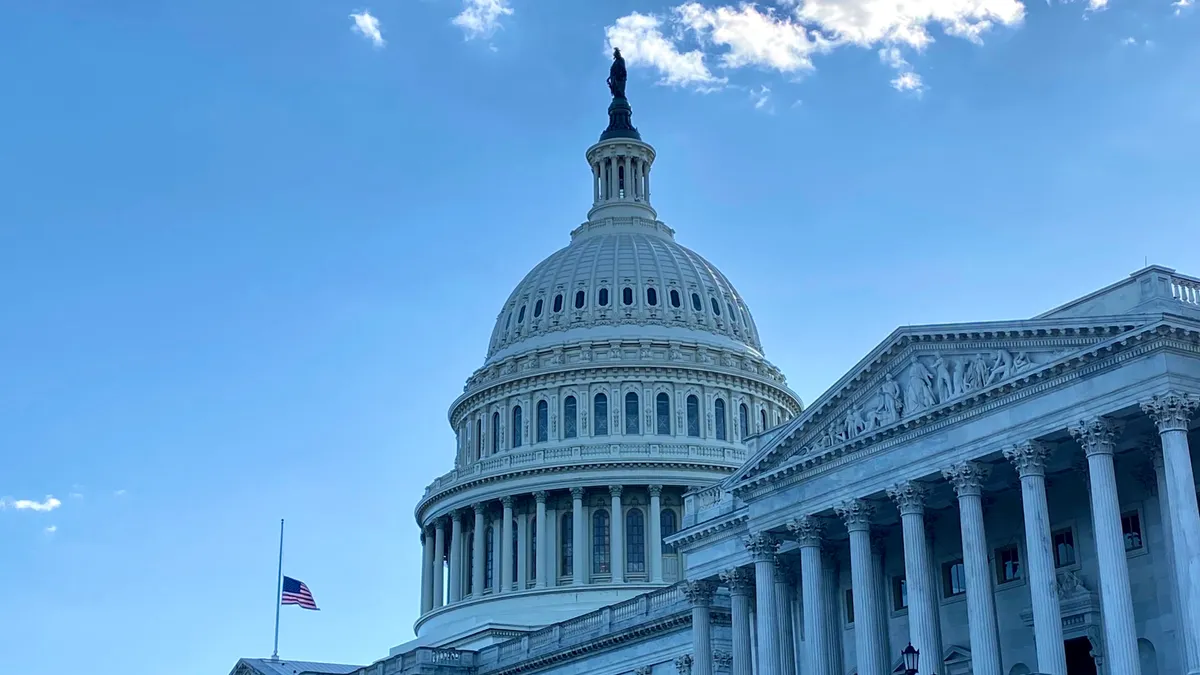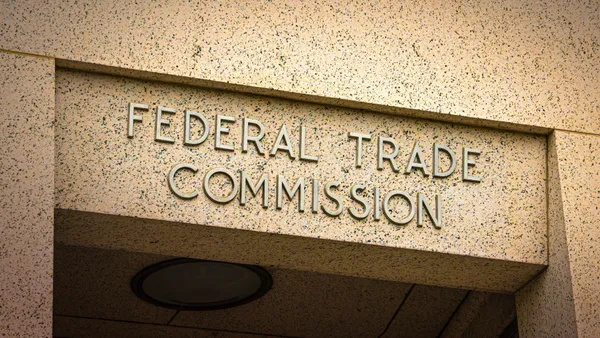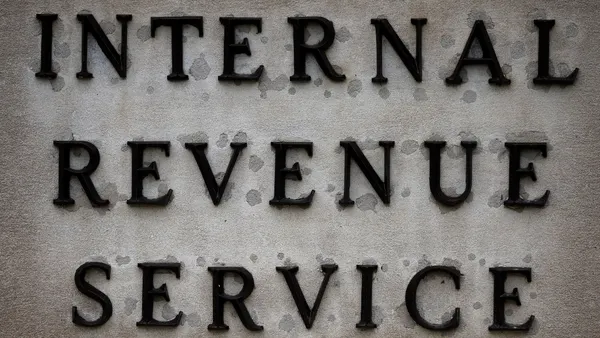Dive Brief:
- The House Financial Services Committee passed two bills aimed at strengthening protections for investors in special purpose acquisition companies (SPACs), so-called blank-check companies that have boomed as a cheaper, faster alternative for raising capital than traditional initial public offerings.
- One bill would bar SPACs that fail to follow stricter disclosure rules from having their securities sold to retail investors, while another would exclude some SPACs from a safe harbor for forward-looking statements, making them liable for misleading or false statements. The committee approved the bills Tuesday.
- “What we have to ask ourselves today is, do we want to have special purpose acquisition companies going out there and merging or acquiring other companies and being able to make fraudulent statements as they try to attract investors?” Rep. Michael San Nicolas, a Democrat from Guam and sponsor of H.R. 5910, said prior to committee approval of the bill. “If we're okay with an acquisition regime that's going to have a green light to make fraudulent statements, then we can continue with the status quo.”
Dive Insight:
While the outlook for the two bills in the Senate is unclear, approval by the House committee signals lawmakers’ support for efforts by Securities and Exchange Commission (SEC) Chair Gary Gensler to strengthen oversight of SPACs.
Gensler has asked agency staff to recommend robust disclosure rules for SPACs with the aim of safeguarding investors.
“SPAC sponsors generate significant dilution and costs for investors,” Gensler warned during a meeting of the agency’s Investor Advisory Committee (IAC) in September.
Gensler said he has asked SEC staff “to look closely at each stage of the SPAC process to ensure that all investors are being protected,” and to provide “analysis to better understand how investors are advantaged or disadvantaged by SPAC transactions.”
Rep. Brad Sherman, a Democrat from California and sponsor of H.R. 5913, said Tuesday his bill would authorize SEC disclosure rules and “ensure that investors have the information that they need when they make a SPAC investment, and at each stage of the investment decision-making process.”
SPACs raise money by selling shares listed on a stock exchange. They then merge with a private company.
Gensler during the IAC meeting cited a study finding “that costs built into the SPAC structure are subtle, opaque, and far higher than has been previously recognized.
“Although SPACs raise $10 per share from investors in their IPOs, by the time the median SPAC merges with a target, it holds just $6.67 in cash for each outstanding share,” the study says. “SPAC investors are bearing the cost of the dilution built into the SPAC structure, and in effect subsidizing the companies they bring public.”
Gensler spoke to the IAC before it unanimously approved an eight-page report urging the SEC to “regulate SPACs more intensively by exercising enhanced focus and stricter enforcement of existing disclosure rules.”
“SPACs by their very nature are rife with conflicts of interest which must be disclosed to potential investors,” according to the IAC, which was created under the Dodd-Frank Act.
SPAC IPOs accounted for more than half of $67 billion in IPO capital raised in the U.S. last year, the advisory committee said, citing Goldman Sachs data. During the first quarter of 2021, SPACs raised $87 billion of $125 billion in total IPO financing.
The SEC slowed the SPAC market in April when staff accountants released a memo saying that warrants attached to SPAC shares should be treated as liabilities rather than as equity. The number of SPAC IPOs plunged 87% from April through June compared with the first quarter of 2021, according to FactSet.
During the third quarter, 60 SPACs raised $11.5 billion, a 42% increase from the $8.1 billion during the second quarter but a 73% decline compared with the $42.9 billion raised during the third quarter of 2020, FactSet said.













